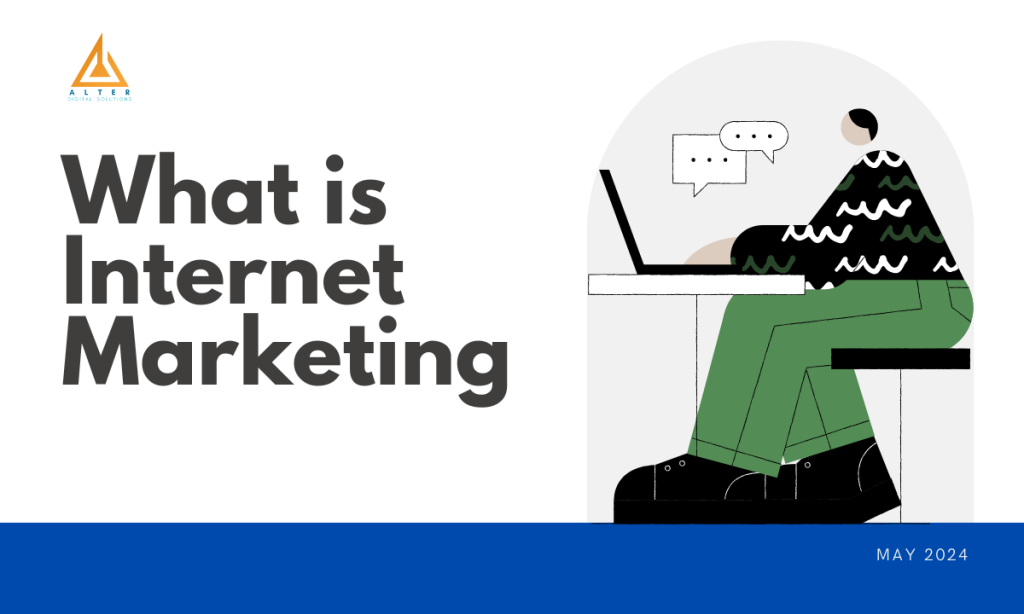
What is Internet Marketing: A Clear Explanation
Internet marketing is a term that has become increasingly popular in recent years. It refers to the use of the Internet to promote products and services. This may include social media, email, search engines, and other digital channels. The goal of internet marketing is to reach potential customers where they are spending most of their time: online.
The rise of the internet has changed the way businesses market their products and services. Traditional methods such as print ads and billboards are no longer as effective as they once were. The internet allows businesses to reach a larger audience more efficiently and at a lower cost. Internet marketing has become an essential part of any successful marketing strategy in today’s digital age.
Internet marketing has many benefits for businesses of all sizes. It allows businesses to target specific audiences, track their marketing efforts in real-time, and adjust their strategies as needed. By using various digital channels, businesses can reach potential customers at different stages of the buying process. Overall, internet marketing has revolutionized the way businesses promote their products and services, and it will continue to play a crucial role in the future of marketing.
Fundamentals of Internet Marketing
Internet marketing is the promotion of products or services through online channels. It is a type of marketing that uses digital technologies to connect with potential customers and build brand awareness. Here are some of the fundamentals of internet marketing:
Understanding Digital Channels
One of the key components of internet marketing is understanding the various digital channels available. These channels include social media, email, search engines, and websites. Each channel has its own unique characteristics and audience. A successful internet marketing strategy will leverage these channels to reach the right audience at the right time.
Target Audience and Market Research
To create an effective internet marketing campaign, it is important to understand the target audience. This involves conducting market research to identify the needs and preferences of potential customers. By understanding the target audience, businesses can create content that resonates with them and drives engagement.
The Role of SEO
Search engine optimization (SEO) is the process of optimizing a website to improve its visibility in search engine results pages (SERPs). This involves using keywords and other techniques to make a website more attractive to search engines. By improving a website’s SEO, businesses can increase their visibility and attract more traffic.
Content Marketing Essentials
Content marketing is the creation and distribution of valuable content to attract and engage a target audience. This can include blog posts, videos, infographics, and other types of content. By creating valuable content, businesses can establish themselves as thought leaders in their industry and build trust with potential customers.
In summary, internet marketing is a powerful tool for businesses to connect with potential customers and build brand awareness. By understanding the fundamentals of internet marketing, businesses can create effective campaigns that drive engagement and increase sales.
Strategies and Measurement
Developing a Marketing Strategy
Developing a comprehensive marketing strategy is essential to any business looking to succeed in the digital age. A well-crafted strategy can help businesses identify their target audience, create compelling content, and drive traffic to their website. To develop a successful strategy, businesses must first identify their goals and objectives. This can include increasing brand awareness, generating leads, or boosting sales. Once goals are established, businesses can then create buyer personas, conduct market research, and develop a content marketing plan.
Performance Metrics and Analytics
Measuring the success of a marketing campaign is critical to determining its effectiveness and identifying areas for improvement. Performance metrics and analytics can help businesses track website traffic, engagement, and conversions. Key metrics to track include click-through rates, bounce rates, time on site, and conversion rates. Businesses can use tools such as Google Analytics to track these metrics and gain valuable insights into their audience’s behavior.
Conversion Optimization
Conversion optimization is the process of improving a website’s ability to convert visitors into customers. To optimize conversion rates, businesses can use a variety of tactics, such as A/B testing, landing page optimization, and call-to-action optimization. A/B testing involves testing two versions of a webpage to determine which one performs better. Landing page optimization involves improving the design and content of landing pages to increase conversions. Call-to-action optimization involves testing and refining the language and design of calls-to-action to encourage more clicks.
In conclusion, developing a marketing strategy, tracking performance metrics and analytics, and optimizing for conversions are critical components of any successful internet marketing campaign. By focusing on these areas, businesses can improve their online presence, drive traffic to their website, and ultimately, increase sales.